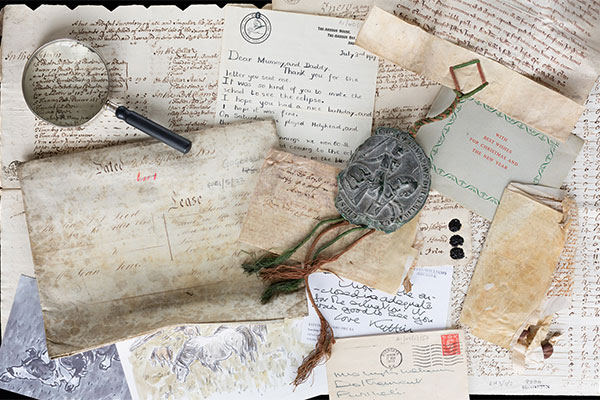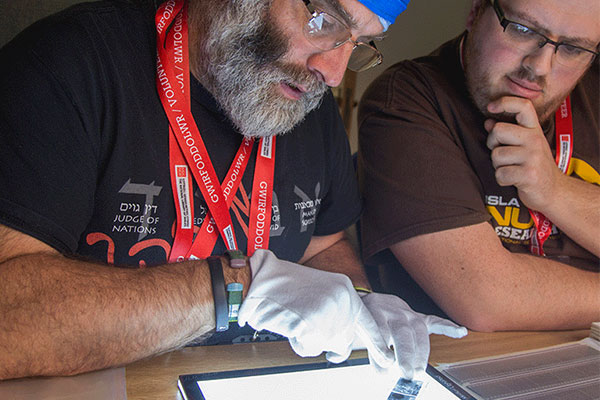Thomas Jeremiah (1797-1868)
Thomas Jeremiah was born on the 21st of May 1797 on his father’s farm in the parish of Goytre in Monmouthshire. He was one of 12 children of ‘poor honest parents’ who ‘held a little farm of about 180 acres under Squire Lee of Pontypool in Monmouthshire’. According to ‘Cenydd’ who is researching the family history on the ancestry website, he was the son of Richard Jeremiah (b.1749 of Mamhilad parish, Monmouthshire) and his wife Mary Phillips (b.1744). From the manuscript, it is obvious that he had been well educated. He describes himself as a rebellious and unsettled youth, who worked on several farms before joining the Royal Welch Fusiliers on 27 November 1812 at the age of 16 (a copy of the enlistment certificate is in NLW ex 803, the original is held at Caernarfon Castle). He spent the next few years in various barracks, before going to the continent on 23 March 1815, and taking part in the Waterloo campaign. His Waterloo Medal is held at the Regimental Museum at Caernarfon Castle, along with his discharge or Parchment Certificate, a testimonial written by Captain J. Enoch, adjutant of the Royal Welch Fusiliers at Waterloo. According to Neil Carey’s information on the Ancestry website ('Jeremiahs from Goetre Monmouthshire in Wales'), he was wounded in action three times. He served with the Royal Welch Fusiliers for 25 years and 210 days, but he does not appear to have risen above the rank of private, before being discharged on 26 June 1837 after being found medically ‘unfit for service’ - on a pension at Kilkenny, Ireland, with an additional pension for gallantry. In his testimonial Captain Enoch describes him as ‘a steady, sober, and well behaved soldier’. After leaving the Army he was appointed Superintendent of Police at Brynmawr in Breconshire in November 1847. He was attacked ‘by local thugs’ in March 1856, and as a result, became lame for the remainder of his life (NLW ex 803 - letter from RWF Curator, Caernarfon Castle, 12 June 1970). He then became Inspector of Weights and Measures for Breconshire, and held that post until he died in 1868.
By 1841, he was married to Elizabeth (possibly Richard,born c.1816)., They lived at Brynmawr, in the parish of Llanelly, where they raised five children: Alonso Edwin, born c.1844, Thomas William, born c.1847, Elizabeth Jane, born c.1849, Laura Maria, born c.1853 and Augusta Eugenia, born c.1855. His wife Elizabeth died between 1855 and 1861, possibly in 1856. His will (transcript in NLW ex 803) was written on 24 May 1867 and proved (PCC) on 13 April 1875, and notes his date of death as 10 April 1868. His five children are named, along with his substantial property, which included eight houses. This was divided between his children, although his son Thomas William was apparently missing, as the will states that all bequests to Thomas William are ‘in the event of his coming home




